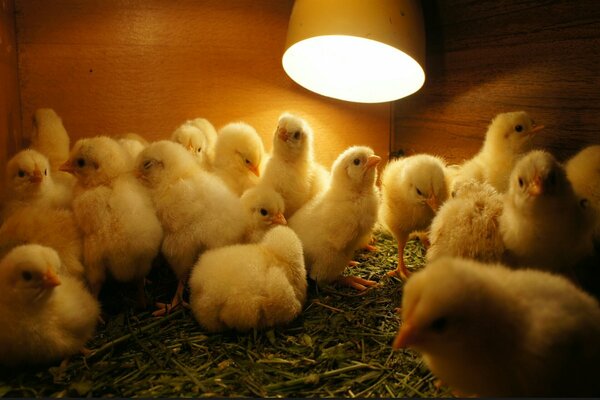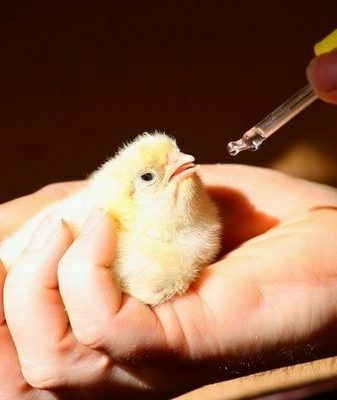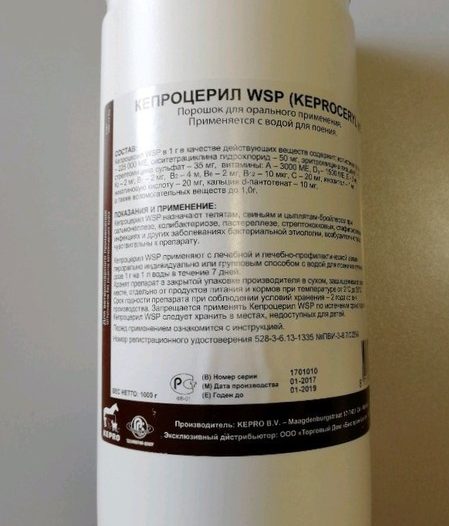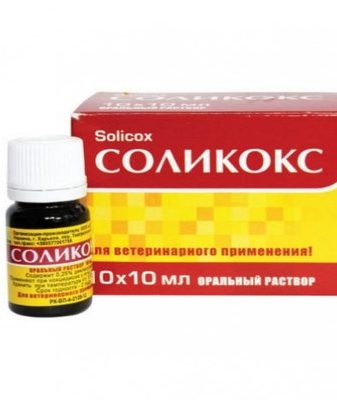Baycox: instructions for use for broiler chickens
Content:
This article contains all the basic information about the drug called "Baycox": what is included, how to use, contraindications and important precautions for use.
Purposes of the drug
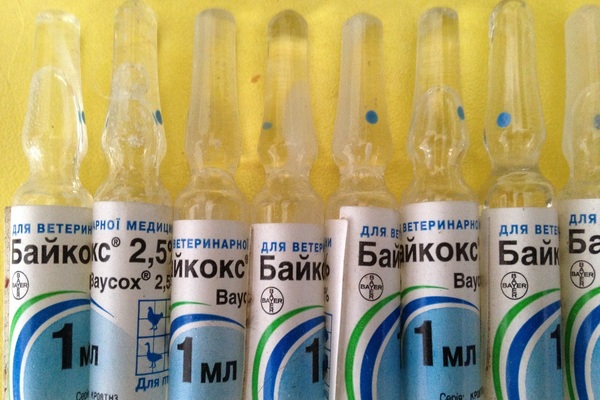
Poultry farmers are well aware that it is extremely important to develop their own system of behavior in this process for caring for chickens and, in general, for poultry. If we are talking about beginners, then it is extremely important for them to take into account many subtleties and points. One of them is taking into account the fact that a bird, just like any other living creature (for example, a person), can be susceptible to a wide variety of infectious diseases and pathologies. In order to carry out effective prevention and comprehensive treatment, it is necessary to use the appropriate special means.
As practice shows, many diseases, in principle, are much easier to prevent than to then cure it, so you should pay attention to several drugs. This article will focus on a drug called Baycox. It is used in order to save the bird from diseases, in particular from such a common viral disease as coccidiosis. In addition to treatment, this drug is also excellent for prevention.
The Baycox preparation for broiler chickens belongs to a series of medicinal products that include special substances. They have anti-coccidial properties, aimed not only at preventing coccidiosis, but also at treating it. Suitable for a wide variety of bird species, regardless of size and age. Baykoks for birds is produced in the form of a concentrated solution (2.5%), packaged in ampoules. 1 milliliter of Baycox ampoule should be diluted per 1 liter of water, but again, the Baycox dosage depends on the type of bird, its age, and size.
Each package contains some information that allows the poultry farmer to better understand what he should do to handle the poultry, and in what quantity it is best to use the drug:
- The name of the company that develops this drug;
- The address of the company, its logo, which acts as one of the distinctive features;
- The name of the medical device;
- The purposes for which it is necessary to apply this medicine, its volume.
Also on the packaging you can find information on the shelf life, storage rules and the size of the components that make up this drug. The medicine for chickens Baycox is produced, as we have already noted, in the form of a concentrated suspension, it is used orally. Therefore, it is easy enough to feed chickens or broilers. This can be done with food. The drug can also be given to a large bird in a dissolved form together with water, it retains its beneficial properties quite well, even if it is used with other vitamin preparations.
How to use Baycox for chickens?
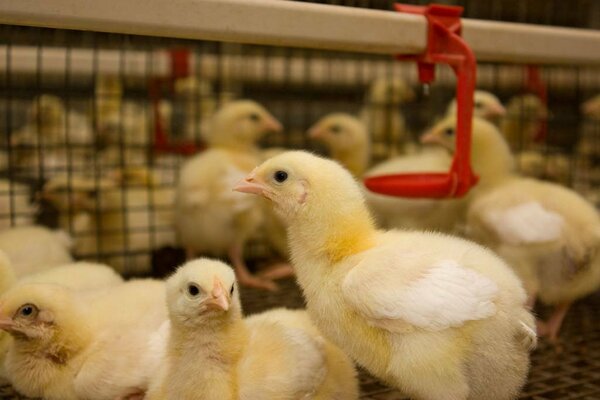
Chicken Formulation Baycox is recommended to start serving chickens after they have reached two weeks of age. In order to prepare a solution of the required concentration, you should take 1 ampoule of the drug and dilute in 1 liter of water. Then, during the day, chicks are given to them. Nevertheless, despite the large number of positive properties, the drug must be used with caution. To do this, you should remember to observe the rules of hygiene, as well as safety precautions, since working with animals and birds is a rather unpredictable process.Especially when it comes to a sick animal that can unexpectedly harm a person, bring an infection into his body through damage (scratch or bite).
Also, during treatment with Baycox, you should not eat, water or smoke. After the procedures have been completed, it is necessary to disinfect the hands and face, preferably with warm water and soap. Also, if the substance suddenly gets on the skin or mucous membranes, they should be thoroughly rinsed with water, as the drug may cause irritation or an allergic reaction. The containers in which the drug is diluted, as a rule, are disposed of, since it strongly eats into the surface and remains on them for a long time. Using them in the future, especially for certain household purposes, is strictly prohibited by specialists and professional poultry breeders.
